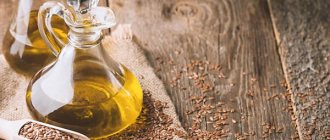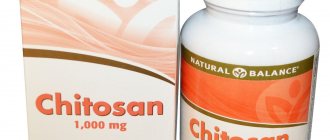Health benefits of flax and effect on cholesterol levels
Flax is a plant unique in nature. It is useful for cardiovascular diseases, atherosclerosis, and gastrointestinal disorders. This plant is used both in folk medicine and in pharmaceuticals, referring to the components of medicines.
Flax seeds contain a high concentration of polyunsaturated fatty acids Omega 3 (60%) , Omega 6 (20%) , Omega 9 (10%). So, the first one, when it enters the human body, reduces cholesterol in the blood, the level of triglycedes, supports metabolism, and stimulates the production of hormones. This helps prevent the occurrence of blood clots, as well as diseases of the cardiovascular system. Omega 6 has a good effect on the blood vessels of the brain, especially useful for people with vascular pathologies.
Flax seeds contain a number of vitamins and minerals: A, B1, B2, B6, E, C as well as potassium, magnesium, zinc and small amounts of lignans. All this has a positive effect on the blood, thins it, lowering cholesterol and speeding up metabolism.
The property of flaxseed oil is its preventive effect against diseases. People with cardiovascular pathologies are advised to include flaxseed oil in their diet. Doctors recommend adding it to food to normalize bad cholesterol levels.
The benefits of flaxseed oil for high cholesterol
Flaxseed oil is a rich yellow or brown product rich in vitamins and minerals. More than half the oil is composed of alpha-linolenic acid, making it one of the richest sources of essential fatty acids. In the body, alpha-linolenic acid is converted into unsaturated fatty acids - eicosapentaenoic acid and docosahexaenoic acid, which are then converted into lipids. Lipids promote healthy skin, improve memory, reduce the risk of high blood pressure, and prevent cholesterolemia.
Due to its high concentration of Omega-3 fatty acids, flaxseed oil has antioxidant properties that slow down the aging process and can protect the body from many diseases. With regular use, it reduces the level of total and “bad” cholesterol in the blood, protects the heart and blood vessels from atherosclerotic damage.
Flax seeds, from which oil is obtained, have similar properties. They can also significantly improve lipid status in patients with high cholesterol. It is safe to say that dietary flaxseed has greater health potential compared to the final product.
Flax seed, unlike oil, contains lignans - biologically active substances classified as natural phytoestrogens. In addition to the ability to regulate the level of female sex hormones in the body, lignans have antioxidant and immunomodulatory properties, providing powerful anti-sclerotic support to the heart and blood vessels. They are active against fungi, viruses and bacteria. In some types of cancer, lignans prevent cell proliferation (growth) and reduce the risk of metastasis.
The shell of flax seeds contains about 800 μg/g of lignans. In comparison, other plants rich in these substances contain only 2–6 µg/g
The effectiveness of the therapeutic effect of flax oil and seeds has been confirmed by laboratory and clinical observations. The range of their possible use is quite wide, including such pathological conditions as:
- Heart diseases. A diet rich in unsaturated fats is one of the effective ways to prevent and treat heart disease. Flaxseed oil for high cholesterol reduces the risk of a fatal heart attack by reducing blood clotting, improving the health of blood vessels, and restoring heart rhythm.
- Overweight and obesity. Consumption of flaxseed products induces the formation of leptin, which prevents overeating and stimulates intestinal function.
- Eczema and psoriasis. Flax relieves inflammation, regenerates epithelial cells, and reduces the amount of rashes.
- Atherosclerosis. Patients with high cholesterolemia are susceptible to fatal heart attack and thromboembolism. The risk of heart attack and stroke is reduced in individuals who regularly take flax seed oil.
- Arterial hypertension. Eating products with ground flaxseed lowers blood pressure.
- Fatty hepatosis. Dietary fiber helps lower cholesterol and increases fecal fat excretion; consuming 5 g of seeds daily for one week increases fecal fat excretion by 50%.
- Chronic colitis and Crohn's disease. The oil soothes the mucous membrane of the inflamed intestines and has a natural laxative effect due to its sufficient dietary fiber content.
- Diabetes. The risk of developing the disease is reduced in people with prediabetes. Consumption of 10 g of crushed seeds for 1 month. reduces blood sugar levels in patients with diabetes by 19.7%.
- Kidney diseases. In a laboratory experiment, the oil helped reduce polycystic kidney damage in male and female rats. The combination of flaxseed oil and one of its antioxidants prevented excess protein in the urine, cystic change and inflammation in the kidneys.
- Shengren's syndrome. Consuming 1-2 g of oil per day reduces the symptom of dry eye that characterizes this immune disease.
- Arthritis and osteoporosis. Dietary supplements protect bones from destruction. Estrogen-deficient mice given high doses prevented osteoporosis and maintained bone strength.
Unsaturated fatty acids are also important for brain function and cognitive and behavioral function. The antioxidant properties of flax products help prevent the formation of free radicals in brain tissue cells and protect against stroke.
How to take flaxseed oil to lower cholesterol
It is recommended to use flaxseed oil for high cholesterol three times a day: morning, lunch and evening. It is drunk before meals for medicinal purposes, but not everyone can take it on an empty stomach, so you can limit yourself to taking it twice a day.
Flaxseed oil should never taste bitter; this means that the oil has already spoiled. It has a yellow or yellowish-brown linen color. The smell should also not be too strong. oil capsules for treatment .
The course lasts three weeks, with a break of two weeks, after which you can drink the oil only after six months. It is not recommended to take the medicine with food. Flax oil does not like high temperatures, which is why it should not be added or taken with hot food.
As a disease prevention, it is recommended to season salads with one or two tablespoons, you can mix it with sour cream or mayonnaise to make a sauce, or you can simply add it to porridge or cottage cheese with herbs, mixing it with other fatty oils.
Flaxseed oil is used for atherosclerosis to reduce cholesterol levels and improve the condition of blood vessels. It is also drunk three times a day 40 minutes before meals.
Side effects and restrictions
Flaxseed oil supplements are generally well tolerated. High concentrations of Omega-3 fatty acids are thought to inhibit blood clotting factors, however, there have been no documented cases of bleeding associated with flaxseed oil intake. People who consume flaxseed oil or seeds for health purposes should keep in mind:
- Flaxseed may stimulate menstruation and other hormonal changes during pregnancy or breastfeeding. Therefore, pregnant and breastfeeding women are advised to avoid its use.
- Flaxseed is rich in soluble fiber. Too large a dose may cause diarrhea, gas, and bloating. It is advisable to slowly increase the dosage. Rancid (oxidized) ground flaxseed or oil can lead to cholesterol problems and inflammation.
- Experiments on animals have shown that an overdose of flaxseed oil can cause convulsions, breathing problems, weakness, and difficulty walking.
- Unripe and raw flaxseed contains potentially toxic cyanogenic compounds, so only processed (diet) flaxseed should be used. Before use, it should be soaked and crushed for easy digestion to extract maximum benefits.
- Large doses of flax seeds that are not sufficiently soaked in water can cause constipation.
Despite numerous positive results from animal experiments, the effect of flaxseed oil on the human body has not been sufficiently studied. Some medications can conflict with fatty acids, weakening or enhancing their effect. Therefore, before you start drinking flaxseed oil to lower cholesterol, you should discuss the prospects for treatment with your doctor.
The human body is not capable of producing omega acids. In this regard, dietary nutrition for people with high cholesterolemia is vital. It is possible to replenish the missing links in metabolism in order to feel healthy and enjoy life. Flax oil or seeds are unlikely to lead to dramatic changes, but, without a doubt, they will promote good health and strengthen the body's immune forces.
How to take flax seed for cholesterol
Flax seeds help restore lipid balance. There are different ways to consume them, but the best way is to consume pure seeds. It is pure flax seeds that contain the largest amount of vitamins needed by the body, as well as phytohormones. One of them is the female hormone estrogen. You can also grind the grains in a coffee grinder and drink a tablespoon three times a day.
You can take flaxseed without grinding it. They are also used as an ingredient in salad or porridge. This course consists of three weeks.
Decoctions are also made from flax seeds , which are very simple to prepare. Add 3-4 tablespoons of flax seeds to a bowl, pour boiling water, cover with a lid, wrap and leave until cool. Then drink flaxseed infusion one or two tablespoons at a time. The product helps reduce blood cholesterol.
also combine taking oil and seeds at the same time. Crushed flax seeds, approximately two tablespoons, are diluted with low-fat kefir and drunk before bed. In this case, drink oil in the morning and for lunch, and in the evening - kefir with flax grains.
If you take flax seeds or oil regularly, it will help prevent cardiovascular diseases, reduce blood pressure in hypertension, cholesterol levels in the blood, prevent the occurrence of comas in type 2 diabetes, and also reduce the risk of developing cancer.
Omacor
Omacor is the trade name of a patented complex, including ethyl esters of fatty polyunsaturated Omega-3 acids (up to 90% of the total composition). The drug also contains eicosapentaenoic acid (EPA) and docosahexaenoic acid (DHA), which are essential fatty acids. The EPA to DHA ratio is 1.2/1. The mechanism of action of Omacor is that eicosapentaenoic and docosahexaenoic acids are a poor substrate for enzymes responsible for the production of triglycerides (ultra-low density cholesterol) in the liver, thus increasing their concentration to a level characteristic of healthy people leads to the normalization of lipid metabolism by reducing the amount of triglycerides produced.
Figure 1 - Omacor is used for cholesterol
Omacor is used to reduce ultra-low-density cholesterol. The mechanism of action of Omacor is to improve lipid metabolism at three levels:
- Omega-3 fatty polyunsaturated acids are transported to the liver, where they form part of various types of lipoproteins, and are subsequently transported to peripheral fat depots;
- Phospholipids of cell membranes are replaced by phospholipids of lipoproteins - polyunsaturated fatty acids in this situation play the role of precursors of different types of eicosanoids;
- Fatty acids serve as a source of replenishing the energy balance in the body - its release occurs through their oxidation.
The concentration of Omega-3 fatty acids in Omacor corresponds to their natural level in the phospholipids of cell membranes.
Very low-density cholesterol is an endogenous lipid that is responsible for transporting fats from fat stores into the bloodstream in the form of fatty acids. When they are oxidized, energy is released. Dysfunction of VLDL (very low density lipids) leads to an increase in the proportion of endogenous triglycerides compared to individuals without such dysfunction. In turn, this can lead to the development of various cardiovascular diseases.
Figure 2 - Prepatha helps reduce cholesterol and weight loss
The drug is used to reduce cholesterol levels, in weight loss diets, to reduce the risk of recurrent myocardial infarction and stroke. Studies have shown that taking 1 milligram of the drug for 3-4 years significantly reduces the level of “bad” cholesterol. Taking Omacor reduces the production of endogenous lipids in the liver, which helps improve the condition of patients with impaired function of endogenous lipid metabolism.
A positive effect of the drug in normalizing blood pressure was noted.
Omacor is used as an adjuvant treatment of myocardial infarction, complementing other standard therapies - for example, the use of statins, antithrombocidal agents, beta blockers, angiotensin-modifying enzyme inhibitors.
In the treatment of endogenous hypertriglyceridemia, Omacor is prescribed if the desired effect cannot be achieved by maintaining a special diet. The drug is used both as monotherapy and in combination with statins.
The product is produced in the form of capsules filled with oils.
Take Omacor 1 capsule for breakfast and dinner orally in case of treatment of hypertriglyceridemia, 1 capsule per day for patients who have suffered a myocardial infarction. If necessary, the amount of the drug can be increased by the attending physician to the amount of daily Omacor intake to 4 capsules per day. It is especially recommended for patients with severe hypertriglyceridemia, for whom fibrates are contraindicated.
Data from clinical studies indicate that regular use of this drug for a long period, more than one year, significantly reduces the risk of developing coronary heart disease and other diseases of the cardiovascular system.
Capsules are taken whole, without opening or chewing, with the required amount of water. The effectiveness of the drug does not depend on food intake, however, if you experience discomfort in the stomach, it is better to combine taking Omacor with food.
Figure 3 — Before taking Omacor, you should consult your doctor
It is recommended to always take the drug at the same time to increase its effectiveness. You must strictly follow your doctor's instructions regarding dosage and frequency of administration. Before starting to take the drug, you should tell your doctor if the patient has or has had liver disease.
This medicine changes the way other medicines work, and you should not take other medicines without first consulting your doctor or pharmacist. Omacor may enhance the effect of oral anticoagulants. Your doctor may recommend a special diet that you should follow to increase the effectiveness of this medication.
If a patient taking Omacor is pregnant or thinks she may become pregnant during treatment, she should tell her doctor. You should also inform about breastfeeding your baby during the course of treatment.
The medicine may cause heartburn and nausea. If you experience any other symptoms that a person taking Omacor believes may be caused by the drug, you should report this to your doctor.
The drug is prescribed with caution to persons with hypersensitivity or allergies to fish.
Since taking Omacor in higher dosages (4 capsules per day) can increase blood clotting time, this factor is taken into account when treating individuals at risk of bleeding, for example, during surgery, bleeding injuries, etc.
When treating with high doses of the drug, the need to control blood pressure in patients, especially in those suffering from any form of liver failure, should be taken into account.
The drug is not prescribed to patients with elevated levels of exogenous triglycerides, i.e. lipids from food. It is not used to treat patients with uncompensated diabetes.
Omacor can be replaced with medications containing Omega-3 fatty acids, but it should be taken into account that the content of eicosapentaenoic and docosahexaenoic acids gives the drug great value.
Omacor, 1000 mg, capsules, 28 pcs.
Abbott, Netherlands
Price from 1200₽
Choosing good oil
Flax oil is a rather sensitive product, as it spoils quickly and does not like the sun. Under no circumstances should you buy it in supermarkets, as storage conditions are often not met there. For flaxseed oil to help with cholesterol, it is better to purchase it at the pharmacy.
The oil is stored only in dark bottles, given that it quickly deteriorates in the sun. Before purchasing, you should check the expiration dates, because flaxseed oil can be stored for no more than 6 months. If the packaging indicates that the product can be stored for longer than six months, it means that preservatives have been added and such oil is not suitable for treatment. You should carefully read the ingredients on the packaging and make sure that the oil contains only flax seeds, without additional flavorings or preservatives.
With the help of flaxseed oil, you can treat diseases of the cardiovascular system. They are used as a general tonic for the body. An open bottle of oil can be stored in the refrigerator for no more than two months. One bottle is enough for a course of treatment to lower cholesterol.
Simple recipes for cholesterol with oil and flax seeds
Flax seeds effectively help with high cholesterol. They found the greatest popularity in use in folk medicine.
Flaxseed flour
Flaxseeds are used to produce flaxseed meal. It is made after pressing the oil from low-fat raw materials. Flaxseed flour contains a lot of vegetable protein, but, unfortunately, has no therapeutic effect for high cholesterol .
The powder is sold in diet food departments, so it is a fairly effective means for losing weight. In the dietary sphere, flaxseed flour is used to prepare meatballs, bake bread, pancakes, cook porridge, make yogurt, or they can simply sprinkle a small amount of flour on a dish.
Seed decoction
Flaxseed decoction is one of the most commonly used recipes in the treatment of high blood cholesterol. The main advantages of this product are that it is highly effective, while having virtually no contraindications for use. A decoction of flax seed has a sufficient amount of mucus, which is good for gastrointestinal diseases.
There are several recipes for preparing flax seed decoctions. For the first recipe you need pure flax seeds, about 8 tablespoons, a liter of boiling water. The seeds should be placed in a large saucepan, or better yet a jar, filled with boiling water and left to steep for 5 hours. There is no need to strain the product afterwards; the seeds will remain at the bottom. You should drink half a glass of flaxseed infusion two to three times a day, for a course of treatment of 2-3 weeks. To avoid discomfort while drinking, you can add a little lemon juice to the infusion.
For the second recipe you will need two teaspoons of seeds and 300 ml of water. Place the seeds in a saucepan, add water, boil for 10 minutes, shaking occasionally to separate the mucus. Afterwards the product needs to be filtered.
You can also take just a teaspoon of seeds and two glasses of water. After filling the seeds with water, they must be put on fire and cooked, shaking all the time. Afterwards, filter the broth and drink three tablespoons of pure mucus three times a day.
The following recipe includes a teaspoon of seeds, two glasses of water. Pour cold water over the flax seed in a saucepan and bring to a boil. The cooled product is filtered. Drink half a glass of flax tea three times a day, you can add lemon or mint.
Flaxseed jelly
For this recipe you will need flaxseed flour. Dissolve 4 tablespoons of flour in a liter of cold water. The jelly is brought to a boil. For taste, smell, and aesthetic appearance, you can add jam, anise, cinnamon, lemon or honey at the end. Drink flaxseed jelly 3-4 times a day before meals. In addition, it will be very useful for children.
Seed with sour cream
A good remedy for intoxication of the body, which helps to remove toxins faster, while removing cholesterol. Flaxseed flour is also used here, following a certain schedule. In the first week for preparation, take one tablespoon of flour and a glass of sour cream, or kefir. They need to be mixed, you can add grated pear or apple. Should be taken for breakfast. This remedy will not only reduce cholesterol in the blood, but will also prevent the development of diseases.
Flaxseed and milk thistle
Milk thistle contains a large amount of boron, chromium, potassium, magnesium, iodine, zinc, selenium, vitamins F, B, K, E, D, A, which the body often lacks due to poor nutrition. Due to such an abundance of vitamins, milk thistle is used together with other medicinal products so that it enhances the therapeutic effect, thereby accelerating the cholesterol-lowering effect.
To prepare the remedy, take two tablespoons of flaxseed, dry milk thistle, and three tablespoons of flaxseed oil. Milk thistle and seeds are placed in a coffee grinder to grind and mix. The plants are mixed with oil, then put in the refrigerator for an hour. You need to take this mixture one teaspoon in the morning after meals for three weeks.
Important contraindications
Flax seeds are good for lowering blood cholesterol. This is one of the most effective remedies for atherosclerosis, but it also has benefits and harms. Before use, be sure to remember that you should not take flax seed products if:
- oncology;
- cholelithiasis;
- allergies;
- constipation
It is prohibited to take flax during pregnancy or breastfeeding. Flax often causes constipation and diarrhea, and in a pregnant woman this will lead to increased uterine tone. If this is missed, a miscarriage or premature birth may occur. The mucilage of flax seeds causes constipation, so flax recipes are especially not recommended for people with intestinal obstruction. When taking flax decoctions, it is better to simultaneously drink a large amount of water for the entire course of treatment to lower cholesterol.
Flax will help reduce blood cholesterol using traditional methods. Its products, which contain large amounts of omega fatty acids, can thin the blood well.










